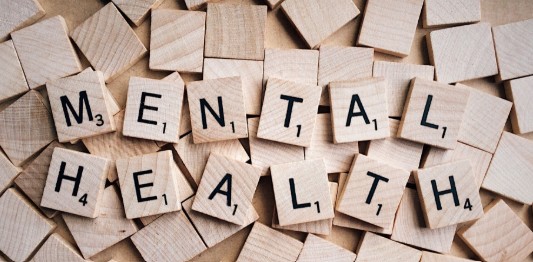Here’s Why You Shouldn’t Put Your Mental Health on the Backburner
You may not always notice it, but your mental health has just as big of an impact on your well-being as your physical health.
Ashamed. Embarrassed. Afraid. All too often, these emotions stop us from sharing our mental health concerns.
But living a full, productive life depends on more than just what you might think of as “physical” health. Mental health matters just as much.
Mental illness is also more common than you might think, too. Although disorders range in severity, around 1 in 5 Americans and 1 in 8 people worldwide experience some type of mental health condition in any given year.
It’s probably fair to say that “mental health” has become a buzzword as much as the term “self-care.” But let’s break down what mental health really is and what it consists of — because it affects a lot.
In general, mental health refers to your overall psychological well-being and the state of your emotional, cognitive and social functioning. Mental health touches many parts of our lives, from our relationships with others to what makes us feel fulfilled and how we deal with life’s challenges.
Our mental health can affect factors like:
- Your self-esteem and self-worth.
- The way you socialize with others.
- The way you find meaning and value in your life.
- Your psychological functioning as it’s tied to memory and problem-solving.
- Your physical well-being.
Why mental health matters
Often, the symptoms of mental health can be “invisible” to the world around you — or even to yourself. So, it’s important to acknowledge when you’re feeling your mental health taking a hit.
Here are some of the benefits of taking care of your mental health:
It affects your brain and cognitive functioning
Have you ever noticed that when you’re in an anxious or depressed mood, you can’t seem to think clearly? Well, just like poor physical health can affect internal organs like your heart and gut, poor mental health can affect the way your brain works.
Our mental health impacts our cognitive processes such as perception, thinking, memory, reasoning and problem-solving. It involves having clear thoughts, the ability to concentrate and make decisions, and the capacity to learn and adapt to new information and experiences.
It affects the rest of your physical health
It’s easy to think of mental health as separate from physical health, but your brain is part of your body. Mental illness is the root cause of many physical symptoms.
“For example, if you’re experiencing sleep disturbances, fatigue, insomnia, headaches, gastric issues, muscle aches, heart palpitations or racing heart, your doctor will want to rule out depression, anxiety or other mental conditions as a potential cause,” explains Dr. Jacobs.
To highlight the importance of this connection, the American Heart Association released a statement in recent years recommending that depression be considered a risk factor for poor outcomes in patients with acute coronary syndrome.
It can help you build resilience
Mental health can play a big part in how we react to tough times — and this is where building resilience comes in. When you’re resilient, you’re better equipped to handle challenges, setbacks and life transitions, while maintaining a sense of balance and well-being.
It can impact your relationships
Mental health is a big part of how we socialize and react to others around us. Having good mental health can help you develop positive and meaningful relationships with others. This ties in with how we communicate and talk with others, how we establish and maintain healthy boundaries, and how we empathize with others.
It can help you maintain a positive self-image
Sure, we get down on ourselves every once in a while. But the way we generally view ourselves is a big factor in our mental health — specifically, our self-esteem and self-worth. Having good mental health can help you recognize your strengths and limitations, while having the confidence in your own abilities and the ability to maintain a healthy level of self-esteem.
It can impact your overall well-being
We all have a lot of feelings, and learning how to manage them is a large part of mental health. This means finding the balance of being able to share and acknowledge your emotions, while also not letting them take over your life. This can encompass things like managing stress, coping with difficult situations and maintaining a positive outlook when times are tough.
How to improve mental health
There’s obviously no single cure-all button that can optimize our mental health. Instead, it takes a combination of different therapies, resources and lifestyle changes to make you feel more mentally at ease.
- Lifestyle changes: Adopting healthy lifestyle practices can have a positive impact on your mental health. This includes exercising regularly, maintaining a balanced diet, getting adequate sleep and reducing stress through relaxation techniques like meditation or mindfulness.
- Psychotherapy: Also known as talk therapy or counseling, psychotherapy involves conversations between a trained mental health professional and an individual or group. Different approaches, like cognitive behavioral therapy (CBT) or dialectical behavior therapy (DBT), can be used to address various mental health concerns.
- Support groups: Peer support groups or group therapy sessions can provide you with a platform to connect with others who have experienced similar mental health challenges. These groups offer a sense of community, understanding and the opportunity to share coping strategies.
There’s a path that’s best for you. We can help you find it.
- Adapted from articles at Cleveland Clinic health.clevelandclinic.org



